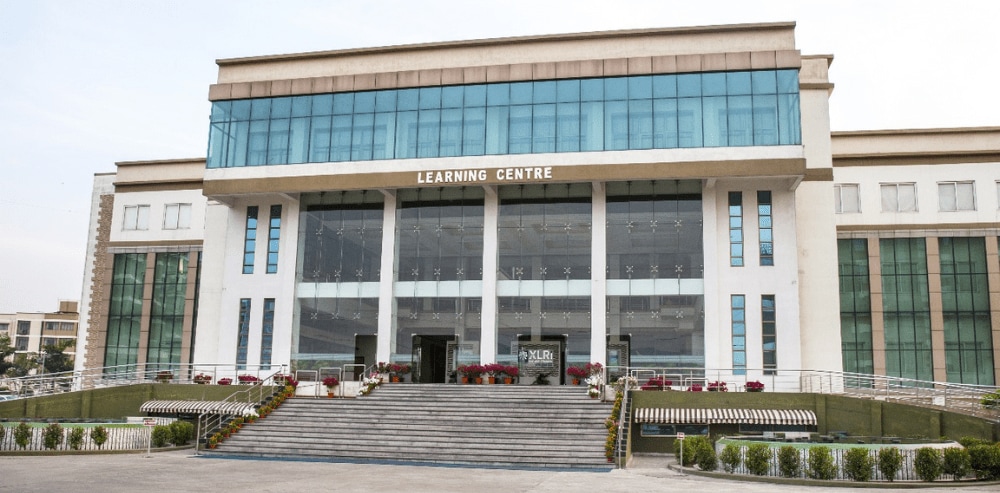For years, supply chains operated quietly in the background. Goods moved, inventories stayed balanced, shelves remained stocked, and most consumers never thought about the invisible network powering their everyday life. That world has shifted. Today, one delay at a manufacturing hub, a shipping delay, a sudden policy change, or a geopolitical event is enough to disrupt markets, increase prices, and reshape consumer behavior overnight.
Supply Chain is no longer an operational support function. It has become a strategic nerve centre that defines whether a company can stay competitive, scale sustainably, and respond to uncertainty with agility. The leaders who will excel in this industry are those who don’t just understand logistics, but they understand business, technology, sustainability, risk, and global interdependence.
What this really means is that the era of reactive supply chain management is over. Organizations now need professionals who can anticipate disruption, design resilient systems, integrate technology intelligently, and lead with sharp decision-making grounded in data. The demand for skilled talent in Logistics & Supply Chain Management (LSCM) isn’t rising; it is accelerating.
The Shift: From Cost Efficiency to Strategic Value
Traditionally, supply chain success was measured through cost optimization and timely delivery. While these fundamentals remain, the definition of success has expanded. Businesses now expect supply chain leaders to:
• Build easy, predictive and tech-enabled networks
• Integrate sustainability and ethical sourcing
• Blend analytics with on-ground operational understanding
• Partner with CXOs to influence enterprise-wide strategy
The role has evolved into a strategic leadership function that touches every part of the business, from procurement and supplier partnerships to customer experience and long-term value creation.
Why Future-Ready LSCM Talent Needs a New Kind of Education
The industry is undergoing a transformation driven by AI, automation, analytics, and digitization. Yet, human elements like judgement, leadership, systems thinking and ethical responsibility remain crucial. Therefore, professionals today need a learning ecosystem that blends both.
This is where the XLRI – RBS Double Masters Programme in Supply Chain Management & Supply Chain Analytics stands out. The programme is designed to shape leaders who can navigate both the physical and digital dimensions of supply chains. The programme integrates academic excellence with real-world business relevance.
What Sets the Programme Apart
The course has been built with a clear purpose: to prepare professionals for leadership roles in a world where supply chains are complex, interconnected, and constantly evolving. It brings together:
• A holistic curriculum that balances strategic thinking with analytical capability
• A global learning lens through the collaboration between XLRI and Rutgers Business School
• Strong industry alignment through case studies, live business perspectives, and exposure to global supply chain practices
• A focus on ethical and responsible leadership, something increasingly vital in global supply networks
Rather than teaching supply chain as a siloed function, the programme cultivates talent that can see the big picture, take informed decisions, and lead with a mindset that blends innovation with accountability.
A Programme That Builds Clarity, Credibility and Career Growth
The value of this programme lies in how seamlessly it translates learning into leadership readiness. Participants walk away with a Dual Masters qualification, industry-aligned skills, and a global perspective that equips them to lead transformation across sectors.
This isn’t just a course upgrade; it’s a career shift towards roles that influence organizational growth. Graduates are equipped for high-impact positions across manufacturing, e-commerce, FMCG, consulting, logistics, retail, technology, and global supply chain hubs.
Subtle, but Strong Institutional Credibility
The programme carries the combined strength of XLRI’s legacy of leadership education and RBS’s global expertise in supply chain analytics. The brand integration is simple: quality learning, global exposure, and leadership development rooted in values and industry relevance. There is no overstated promise, only a commitment to shaping leaders who can meaningfully contribute to the world of business.
The Bottom Line
Supply chains are no longer the silent engine of business; they are the drivers of competitiveness, resilience, and growth. Organizations need leaders who can navigate complexity with clarity and foresight. For professionals ready to step into that space, this programme offers a timely and meaningful opportunity to build a career that truly shapes the future of business.
If you’re looking to move beyond operational roles and grow into a strategic leadership career in Supply Chain Management, this is your moment.
Interested candidates can register to explore the programme further.

Dr. Alok Raj is an Associate Professor in Production, Operations, and Decision Sciences at XLRI – Xavier School of Management, Jamshedpur. A Ph.D. from IIM Lucknow and an engineering graduate from BIT Sindri, Dr. Raj blends academic depth with over a decade of industry experience at Ispat Industries (now JSW) and Hindustan Aeronautics Limited.
His research explores how businesses can build sustainable and digitally driven supply chains, with a keen interest in healthcare operations. His work has been published in top international journals and has earned him XLRI’s Research Publication Excellence Awards in 2024 and 2025.
As the Conference Chairman for POMS India Chapter 2023, Dr. Raj has been at the forefront of academic collaboration in operations research. At XLRI, he passionately teaches Operations Management, Supply Chain Management, and Prescriptive Analytics inspiring future leaders to think beyond efficiency and towards impact.
